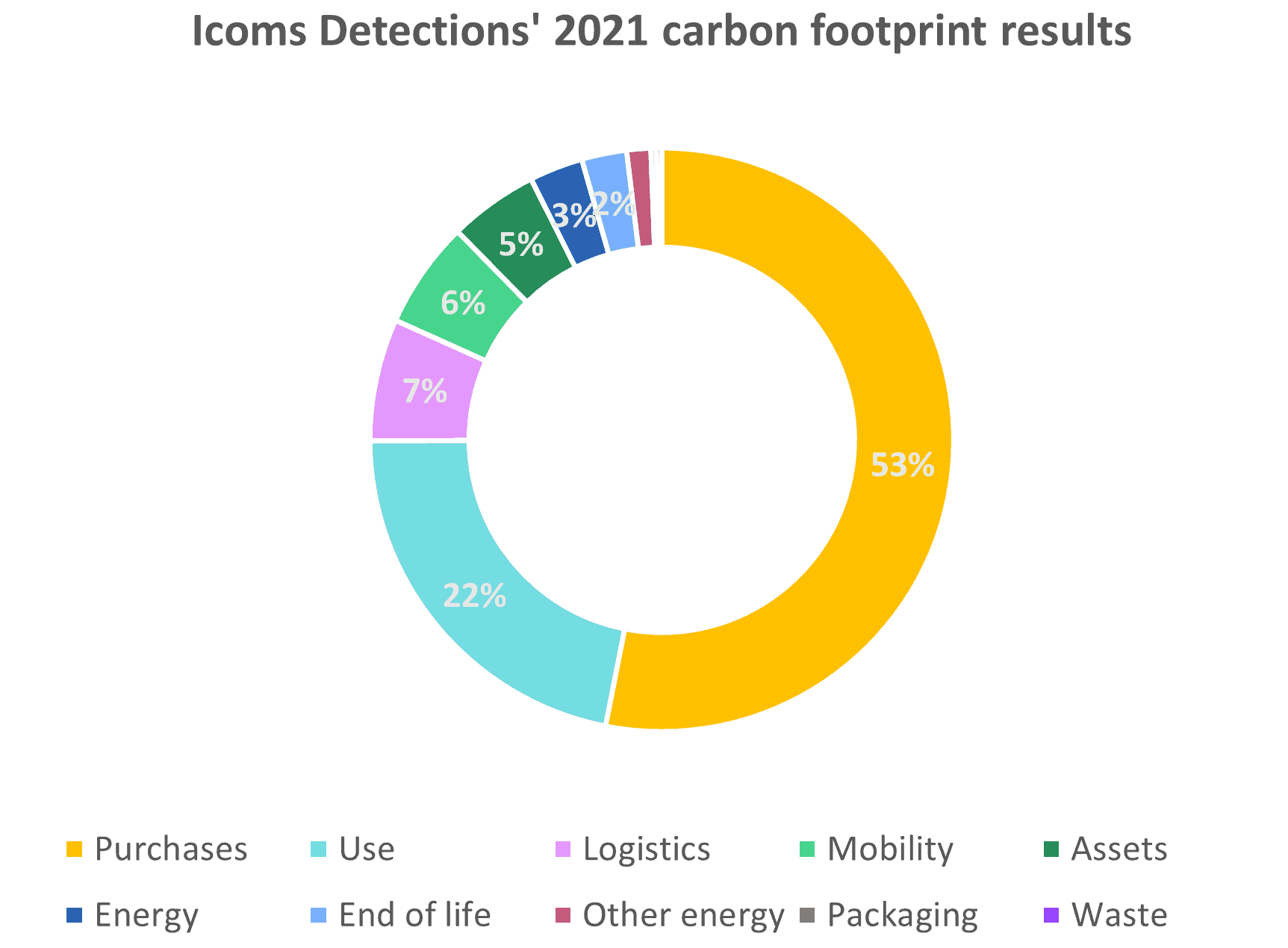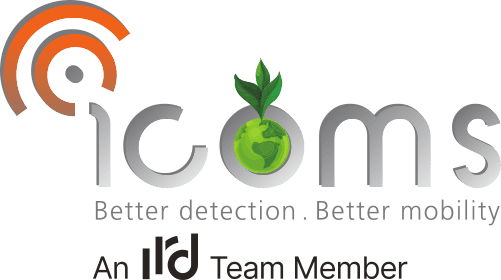As part of its commitment to sustainable development, Icoms has embarked on a project to measure its carbon footprint. The objectives of this initiative are outlined below:
- To provide customers with transparent information on the environmental impact of its products and activities.
- To identify levers for action to reduce this impact.
By assessing its carbon footprint and analysing the life cycle of its sensors, we have gained in-depth knowledge of the environmental performance of its offerings. The comparison with certain competing technologies showed that the footprint of our products was lower than that of competing technologies, giving us a competitive advantage in the market. The result went beyond factual data, as the journey, undertaken with D-Carbonize, involved all the company’s departments and thus strengthened team spirit.
This action is part of the sustainable entrepreneurship certification programme that we began in 2022. In addition to innovation, it demonstrates our commitment to inclusion, diversity and the fight against climate change.
1. What stages have we gone through?
- Assessing the carbon footprint of the company as a whole was the first phase.
Icoms called on the expertise of D-Carbonize to collect and analyse the data needed to measure the carbon footprint. Their calculation method is based on the Bilan Carbone® international standard (ADEME recommendations). It takes into account the three components of the Greenhouse gas protocol (GHG):
- Scope 1: direct emissions linked to the operation of the company and its vehicles
- Scope 2: indirect emissions generated mainly by energy purchases
- Scope 3: emissions generated by incoming and outgoing flows (purchases, upstream and downstream transport of goods, product life cycle, etc.).
2. The second stage of the project was to analyse one of our flagship products.
The aim was to analyse the entire life cycle of the TMA-122, a radar sensor for managing traffic lights, from raw materials to manufacturing, installation and recycling. The aim of this phase was twofold:
- to identify ways of reducing greenhouse gas emissions
- to compare with certain competing technologies.
2. Lessons and results
In addition to the effort made by everyone to provide the data required for the analysis, the team has grown from the experience. Sharing the results has brought its share of benefits. Employees understood that each individual and each department could contribute to reducing greenhouse gas emissions.
This analysis has provided us with vital information about the environmental impact of our activities and our products. We have identified the main sources of emissions and, consequently, the opportunities for reduction.

This graph shows that purchases and the use of products, largely linked to their electricity consumption, are the most significant items in the breakdown of emissions.
While actions to reduce the impact of purchasing are a long-term project, some are already in place, such as transporting certain components by train. On the other hand, concentrating efforts on the energy consumption of products can bring short term tangible results. The R&D department has already proposed a number of particularly exciting improvements, such as optimising calculation time and putting the microcontroller into standby mode, or switching to less energy-consuming LEDs for speed displays.
We’ll be presenting a comparison with some of the competing technologies in a future article, so keep following us to find out more.
3. Conclusion
As part of its commitment to sustainable development, Icoms Detections has proactively measured its carbon footprint. In doing so, we are demonstrating our promise to meet customer expectations for green solutions while aligning ourselves with global efforts to mitigate climate change. Our team is focused on improving the environmental performance of the company and its products, implementing sustainable practices and leading the intelligent traffic management industry towards a greener future.
Icoms Detections, a subsidiary of International Road Dynamics (IRD), is based in Louvain-la-Neuve and employs around 15 people. The company supplies road traffic management sensors to customers all over the world.

